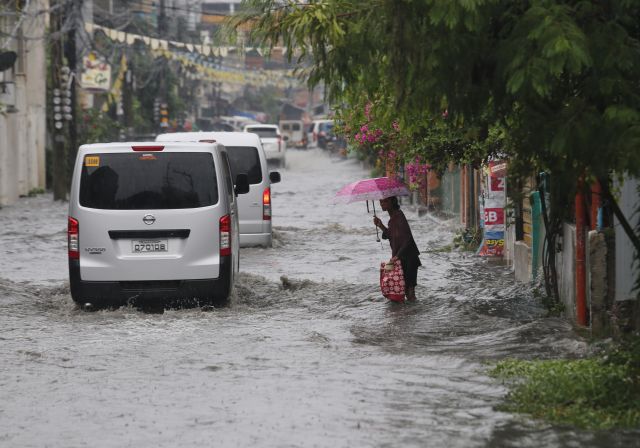“It is best to arm ourselves with weapons against these diseases even before the onset of the rainy season by building a strong resistance against these illnesses and practicing personal hygiene and environmental sanitation,” Health Secretary Francisco T. Duque said in a statement.
Common diseases
The DOH said diarrhea is an increase in the frequency of loose or liquid bowel movements usually caused by a variety of bacterial, viral, and parasitic organisms, while typhoid fever is an infectious disease commonly spread through contaminated food and water or through close contact with someone who is infected.
Cholera meanwhile is an acute intestinal infection caused by food or water contaminated with the bacteria known as Vibrio cholera, DOH said, adding that the same bacteria could cause watery diarrhea that can lead to severe dehydration and death.
“Diarrhea, typhoid fever, and cholera are all food- and water-borne diseases. These can be prevented by drinking water only from safe sources. Or if unsure, to boil water for 3 minutes or do water chlorination. Cook food well and always have it covered to prevent contamination from flies and other insects. Always wash hands before preparing or handling food and after using the toilet,” the Health Department advised.
On the other hand, leptospirosis is a bacterial infection transmitted by many animals, such as rodents and other vermin. The DOH said it is advisable to avoid swimming or wading in potentially contaminated flood waters and maintain cleanliness in the house to ensure control of rodents or rats.
Meanwhile, the DOH said dengue fever and dengue hemorrhagic fever– acute viral infections that are caused by the bite of the dengue-carrying mosquito— could be avoided by practicing the 4-S technique. The 4-S technique stands for: search and destroy, self-protection measures, seek early consultation, and say yes to fogging when there is an impending outbreak or hotspot.
Malaria, a serious and sometimes fatal disease is caused by a parasite that commonly infects certain type of mosquito, can be prevented by using long lasting insecticidal mosquito nets, especially during nighttime, and by following the advice of health workers on how to take anti-malaria drugs, the DOH added. (Editor: Mike U. Frialde)
Follow us: @inquirerdotnet on Twitter | inquirerdotnet on Facebook


